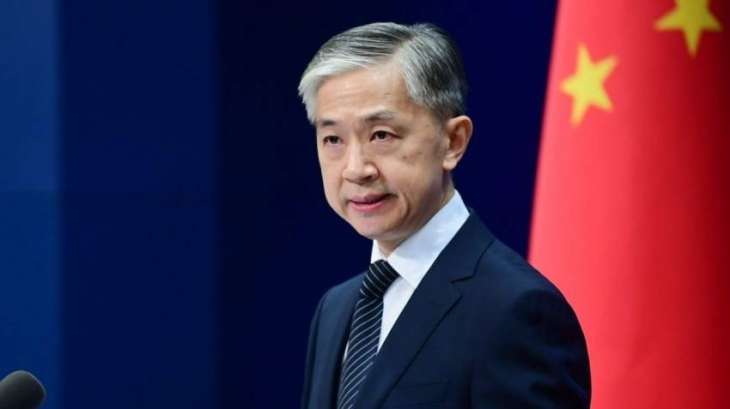China on Wednesday slammed the "erroneous actions" of Japanese politicians linked to the ceremonial offerings at the Yasukuni Shrine, which is considered by other Asian nations as a symbol of Japan's militarist past
BEIJING (Pakistan Point News / Sputnik - 21st April, 2021) China on Wednesday slammed the "erroneous actions" of Japanese politicians linked to the ceremonial offerings at the Yasukuni Shrine, which is considered by other Asian nations as a symbol of Japan's militarist past.
Earlier on Wednesday, the biannual two-day spring festival began at the controversial place of remembrance of the 2.5 million Japanese soldiers who died fighting for the empire. The celebration is also held each autumn. The shrine has attracted controversy because it also lists the Names of over 1,000 war criminals, including 14 "Class A" war criminals this is a classification Japan gives for "crimes against peace" who were executed or given lengthy prison sentences.
Japanese Prime Minister Yoshihide Suga sent a traditional ritual tribute, a "masakaki" tree offering, but refrained from visiting the notorious shrine, unlike his predecessor Shinzo Abe, who went to the place earlier on Wednesday. Suga made the same gesture a ritual offering without a visit in October last year.
"We always strongly oppose the erroneous actions of Japanese politicians," Chinese Foreign Ministry spokesman Wang Wenbin said.
Beijing urged Tokyo to abide by the principles set out in the four Japanese-Chinese political treaties regarded as the foundation of bilateral ties, to properly assess the history of its aggression and deeply repent, to dissociate itself from militarism, and to take real actions to win the trust of its Asian neighbors and the international community, the spokesman noted.
During his time as Japanese prime minister since 2012, Abe visited the shrine in person only once, in 2013, calling the decision an anti-war gesture. The move sparked protests in China and South Korea, and angered the United States, Japan's main ally. Abe then refrained from visiting the shrine, opting only to send ritual offerings until he resigned in 2020.
Regular visits of Japanese officials to the shrine have been a contentious issue in diplomatic relations between Japan and its neighbors, who suffered from Japanese militarism.




